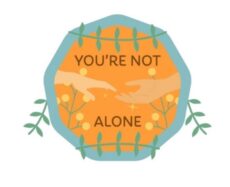
Who is in charge? Me or my anger? It can be hard to tell, especially, given that on the surface we very often appear perfectly normal as we try and mask that we feel is inappropriate to expose to the world.
Yet sometimes it can feel like we are led by our base emotions. Like anger. Meaning that we respond to different situations from a reactive space, not a logical one. Anger, as one of those emotions, can be rather blinding and all consuming. It can even remove our intellectual filters and make us appear rude, ungrateful or mean.
Addressing the stigma:
Talking about anger is a bit of a loaded subject.
Many of us have been conditioned to believe that anger is BAD. Capital B, bad, or better still, all caps BAD.
Funny how most of us took it as gospel to be believed. For many reasons. Because grown-ups sound like they know what they are talking about. Because it just seems natural – we see it in movies, read it in books – people who are angry get in trouble, go to jail, get fined, get scolded etc.
But I am here to challenge this stigma. Yes, you heard it. Anger is not always BAD. As a matter of fact, it can be good, better still, helpful and useful.
What is underneath all the anger?
Anger is usually just the tip of the emotional iceberg

Sometimes what is masked by anger can be deep sadness, frustration, loneliness. It is perfectly OK and natural to experience all of them, but sometimes, we feel like it might just be too much to sit with the sadness, for example, to let it all in, and instead – we become angry. Anger is easier, it is right there on the surface. Easily accessible.
Dealing with anger
How can one express and process it in a healthy way? There can be many ways and most importantly – it is OK to explore them. For example, sports are always a good way to release negative emotions, boxing, martial arts, running, axe throwing or even darts, bowling and even swimming sometimes, depending on your personal preferences and experience. I, for one, enjoy dancing and when I am angry it turns into more of kicking and screaming to the music that is playing, but I have learned to embrace making it my own process and not judge it.
Another healthy way to process some of your anger can be writing about it. You can scream BOOORING at me right now, and you would be right. But hey, to each their own, right? For example, you can write something in aggressive font, huge letters, cross it all out, burn it, scrunch it, tear it up…
As an example – I have previously painted an all black canvas and eventually added red letters PAIN to it when I was processing some of my anger.
Expressions of anger
For some of us it is painfully obvious when we are angry – our face gets red, our muscles tense, heart starts racing – in essence, we have a very physical response to anger. However, it might not always be this obvious. Some may experience moodiness and frustration, they may get quiet and unresponsive, shut off, stop communicating. Sometimes, we may not even know exactly what’s wrong, we just feel “off” somehow. All of it is OK. As long as you try and accept it without judgment. I know, easier said than done, right? But it is important that we try.
Seeing anger in others
We can get a bit lost when we confronted with anger in others. And it’s OK. The important thing to remember is to separate the emotion from the person. We are not we feel or how we act. At least not all the time. You might have heard something along the lines of:” You can’t control what others say or do, but you can control your response” and that is the answer in a nutshell. Try and remember that their anger is very rarely directed at you or caused by you. You can either try and put some space between the angry person and yourself, or if it is a safe option – have an honest conversation about the roots of the anger and where it might be coming from.
Sometimes, anger can rub off on us, like a contagious illness. It is important to be able to recognise if/when we might be triggered by something another person may have said or done. Therapy is always a great place to figure things out and learn about personal triggers and emotional responses.
Healthy outlets and communicating anger
As long as you are not hurting yourself or others, consider expressions of anger that work for you on a personal level. Individualise your expression. Sometimes the most beautiful, meaningful and profound creations come out of your expression of inner most personal struggles with difficult emotions. Consider art, music, creative writing, decorating or renovating (can be a physical outlet too). Use a simple tool of body scanning to realise where you hold most tension, where you feel your anger most. Like for example, for most of us, we tend to overthink and get in our heads. When that happens, it might be helpful to take things down, literally, focus on the lower part of your body and do something with our feet, toes – ground yourself.
To avoid anger building up – keep the lines of communication open. Start with yourself if you feel strange opening up to others about something do intimate and personal. Just say it out loud “I feel so angry right now” and notice if you feel any different after. Perhaps, punch a pillow, or scream into one, turn the music on really loudly (where possible) and scream either the words to the song or your feelings out loud. Notice if you feel any differently.
Progressive muscle relaxation can be a useful tool when it comes to anger that has been building up – use different muscle groups and tense them up for a few seconds and then release and notice the difference.
Address the feelings underneath the anger (anger iceberg) and why they are there. For example, it is very common to feel angry when grieving a loss – anger is on the surface of deep sadness that sometimes we are afraid to let it, because it might be too much.
It is important to ask for help, we are not meant to face challenging things on our own. And IT IS OK TO NOT BE OK! Call support lines, speak to a mental health professional, call a friend, call your family, vent and blow off steam, remember, you do not have to carry it all by yourself!
A.N.G.E.R acronym
To help others make sense of what it is all about I came up with this acronym:
Appreciating anger can be difficult. On the best of days. But if you stop and think for a second “Why am I angry right now?” you might just be surprised. Appreciate or acknowledge the feeling of anger for what it might be telling you, the message it is sending. And then Negotiate a possible outlet, expression for it. Allow yourself to learn from this experience and Grow as a person. That just might feel Empowering. And finally, allow yourself space to Relax and rest, because anger and it’s expression can be rather exhausting sometimes.
Stay tuned and let me know what other subjects you are interested in exploring.


